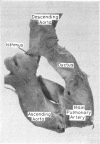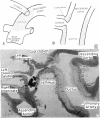Abstract
A histological study has been made in an attempt to study further the relation between the ductus arteriosus, coarctation, and tubular hypoplasia of the aortic arch. Thirty-five aortic arch systems were studied using serial sectioning techniques. Twelve were from patients with coarctation and/or tubular hypoplasia. The other 23 hearts were from patients without aortic obstructive lesions, 7 from anatomically normal hearts, and the others from malformed hearts with anomalies elsewhere from the aortic arch. The anatomical study of the hearts with obstructive aortic lesions emphasised the necessity of distinguishing 'coarctation' from 'tubular hypoplasia', since the curtain lesion of coarctation was found to coexist with tubular hypoplasia in some cases. The histological study showed that the ductus was easily distinguished from the walls of the aorta or pulmonary artery. In all these cases with coarctation or tubular hypoplasia a sling of ductal tissue was located around the aortic isthmal orifice. In 6 hearts a diaphragm of ductal tissue was seen to form the coarctation lesion.
Full text
PDF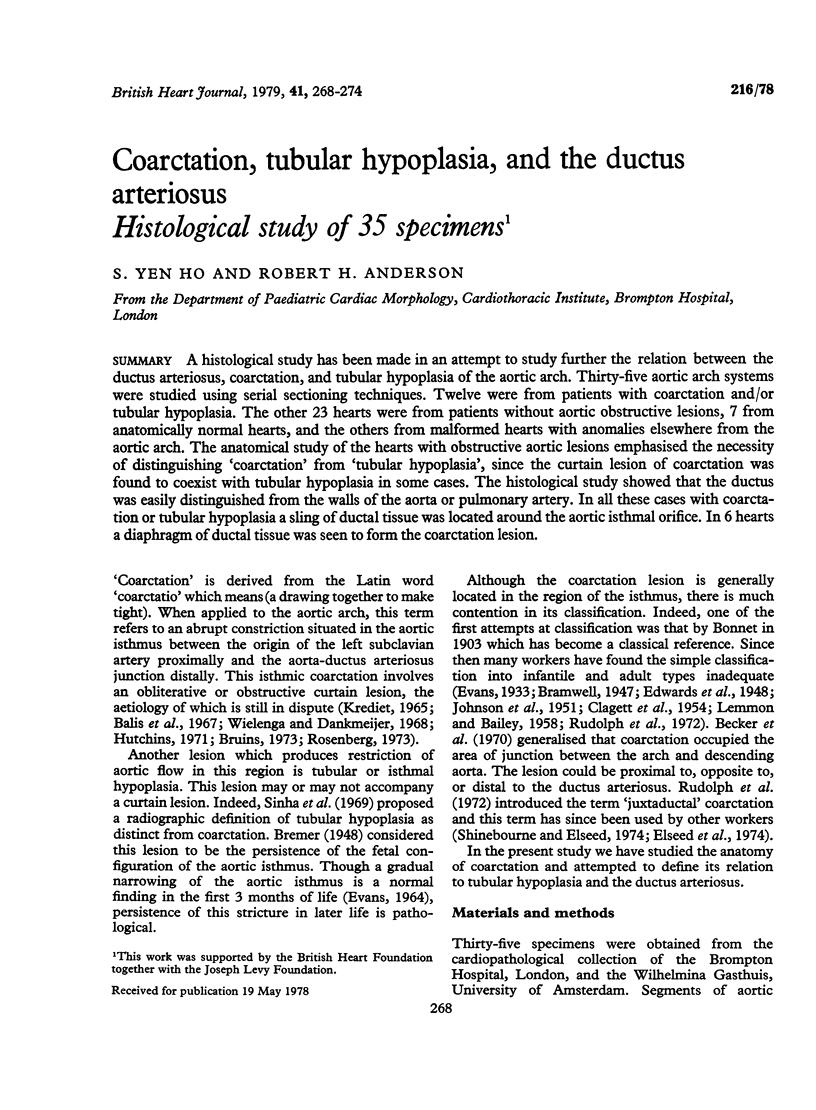
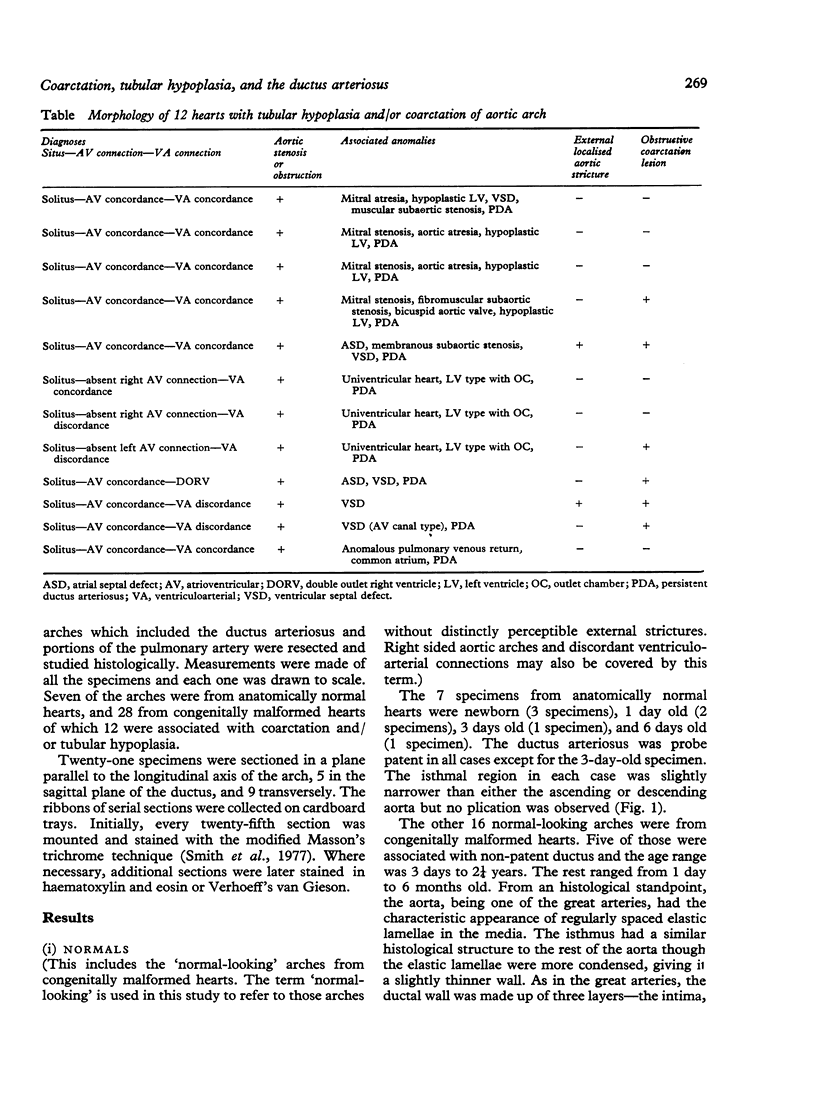
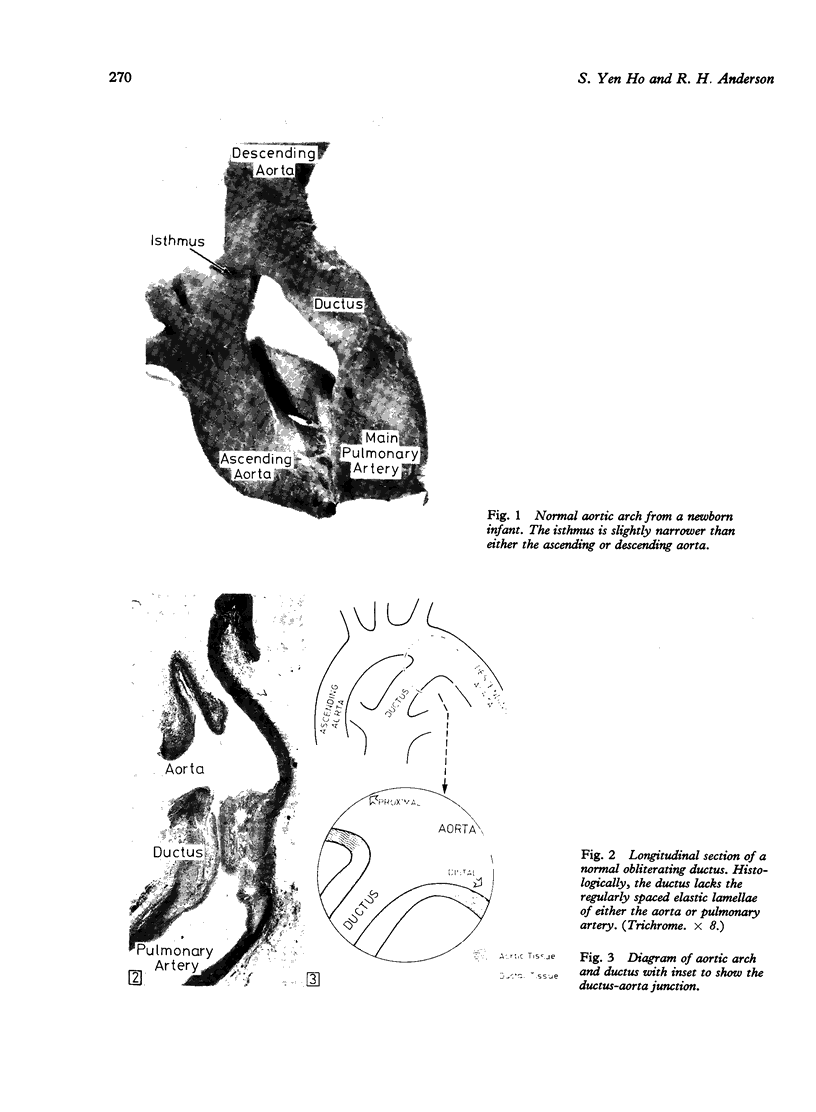
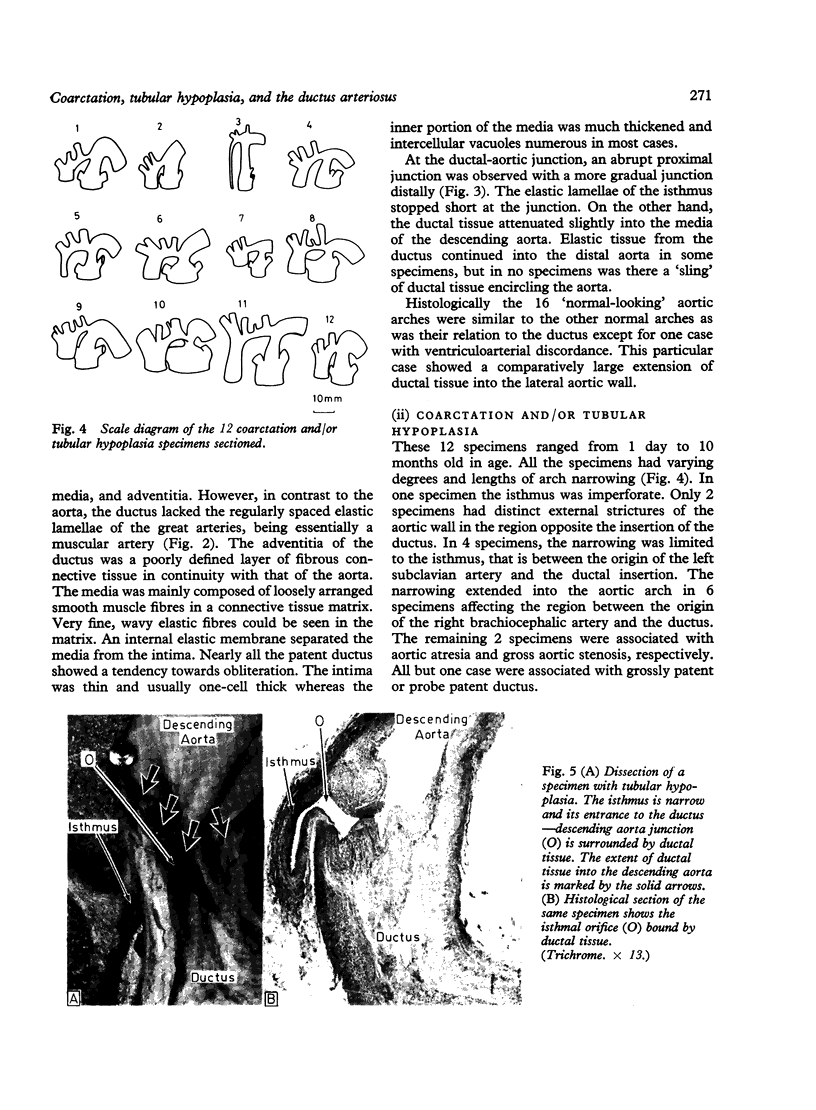
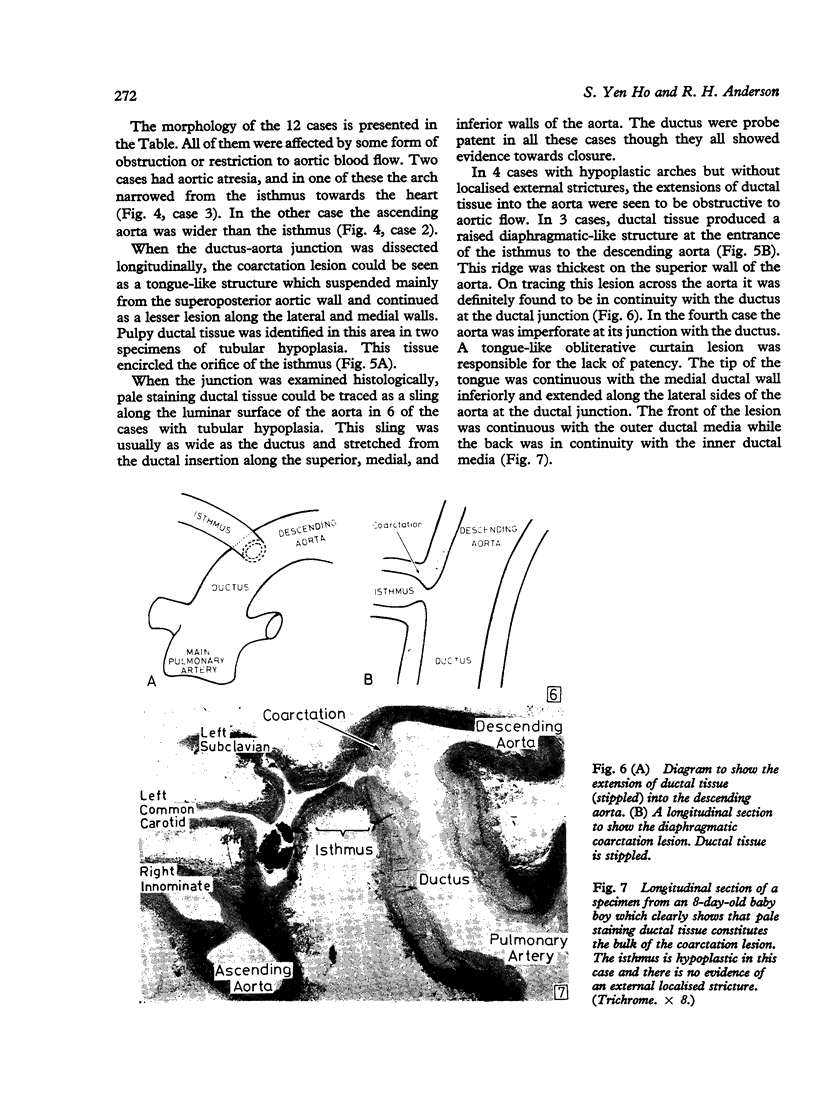
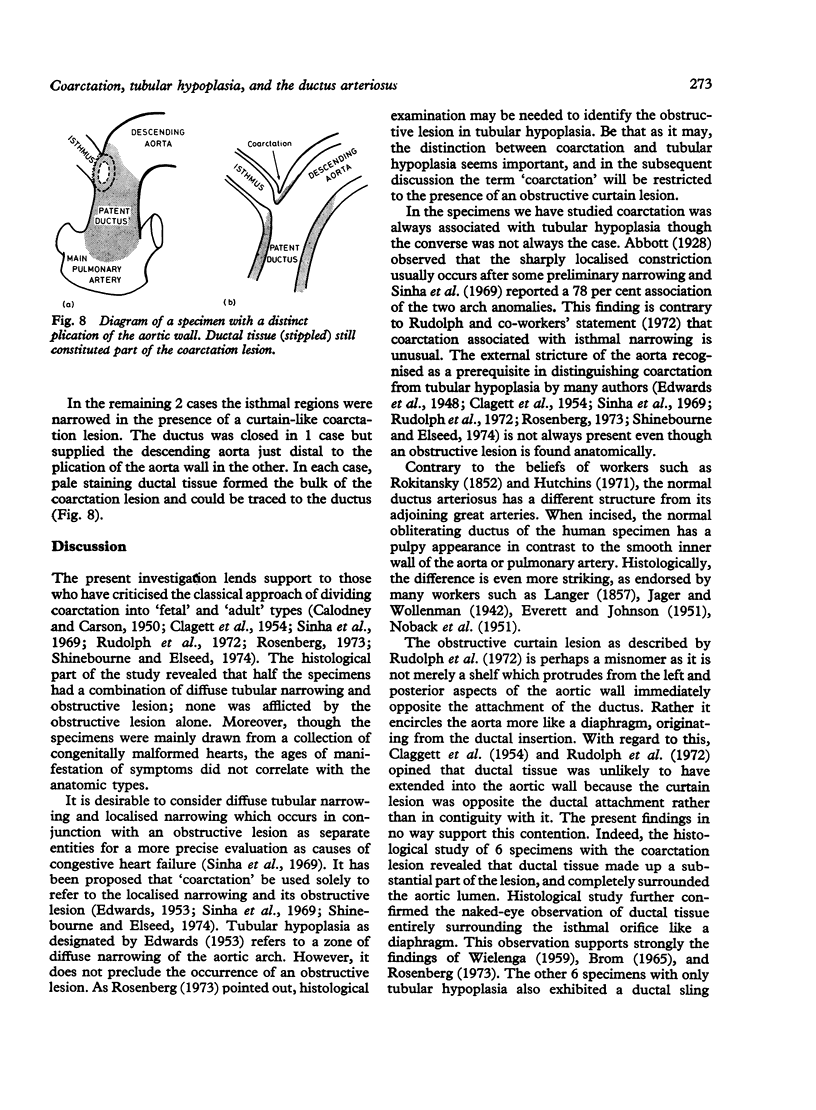
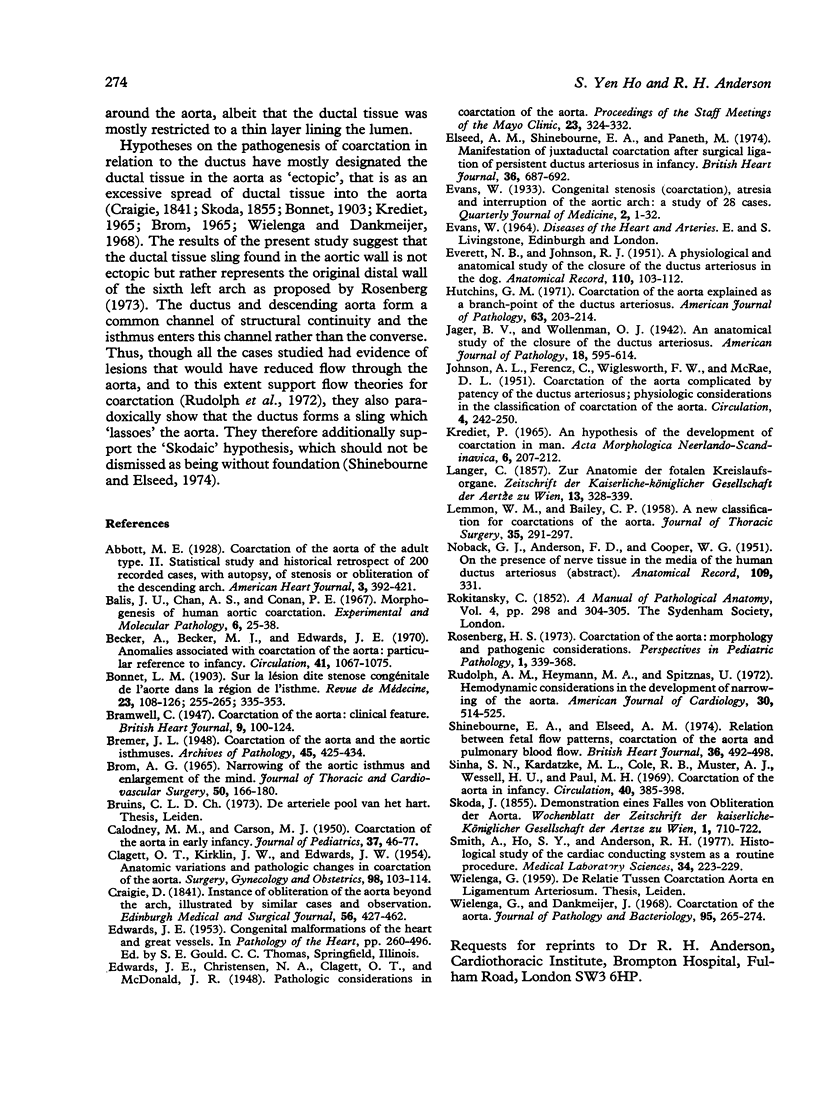
Images in this article
Selected References
These references are in PubMed. This may not be the complete list of references from this article.
- BROM A. G. NARROWING OF THE AORTIC ISTHMUS AND ENLARGEMENT OF THE MIND. J Thorac Cardiovasc Surg. 1965 Aug;50:166–180. [PubMed] [Google Scholar]
- Balis J. U., Chan A. S., Conen P. E. Morphogenesis of human aortic coarctation. Exp Mol Pathol. 1967 Feb;6(1):25–38. doi: 10.1016/0014-4800(67)90004-4. [DOI] [PubMed] [Google Scholar]
- Becker A. E., Becker M. J., Edwards J. E. Anomalies associated with coarctation of aorta: particular reference to infancy. Circulation. 1970 Jun;41(6):1067–1075. doi: 10.1161/01.cir.41.6.1067. [DOI] [PubMed] [Google Scholar]
- Bramwell C. COARCTATION OF THE AORTA: II. CLINICAL FEATURES. Br Heart J. 1947 Apr;9(2):100–127. [PMC free article] [PubMed] [Google Scholar]
- CALODNEY M. M., CARSON M. J. Coarctation of the aorta in early infancy. J Pediatr. 1950 Jul;37(1):46–77. doi: 10.1016/s0022-3476(50)80006-9. [DOI] [PubMed] [Google Scholar]
- CLAGETT O. T., KIRKLIN J. W., EDWARDS J. E. Anatomic variations and pathologic changes in coarctation of the aorta; a study of 124 cases. Surg Gynecol Obstet. 1954 Jan;98(1):103–114. [PubMed] [Google Scholar]
- EVERETT N. B., JOHNSON R. J. A physiological and anatomical study of the closure of the ductus arteriosus in the dog. Anat Rec. 1951 May;110(1):103–111. doi: 10.1002/ar.1091100110. [DOI] [PubMed] [Google Scholar]
- Elseed A. M., Shinebourne E. A., Paneth M. Manifestation of juxtaductal coarctation after surgical ligation of persistent ductus arteriosus in infancy. Br Heart J. 1974 Jul;36(7):687–692. doi: 10.1136/hrt.36.7.687. [DOI] [PMC free article] [PubMed] [Google Scholar]
- Hutchins G. M. Coarctation of the aorta explained as a branch-point of the ductus arteriosus. Am J Pathol. 1971 May;63(2):203–214. [PMC free article] [PubMed] [Google Scholar]
- JOHNSON A. L., FERENCZ C., WIGLESWORTH F. W., McRAE D. L. Coarctation of the aorta complicated by patency of the ductus arteriosus; physiologic considerations in the classification of coarctation of the aorta. Circulation. 1951 Aug;4(2):242–250. doi: 10.1161/01.cir.4.2.242. [DOI] [PubMed] [Google Scholar]
- Jager B. V., Wollenman O. J. An Anatomical Study of the Closure of the Ductus Arteriosus. Am J Pathol. 1942 Jul;18(4):595–613. [PMC free article] [PubMed] [Google Scholar]
- KREDIET P. AN HYPOTHESIS OF THE DEVELOPMENT OF COARCTATION IN MAN. Acta Morphol Neerl Scand. 1965;6:207–212. [PubMed] [Google Scholar]
- LEMMON W. M., BAILEY C. P. A new classification for coarctations of the aorta. J Thorac Surg. 1958 Mar;35(3):291–297. [PubMed] [Google Scholar]
- Rosenberg H. S. Coarctation of the aorta: morphology and pathogenetic considerations. Perspect Pediatr Pathol. 1973;1:339–368. [PubMed] [Google Scholar]
- Rudolph A. M., Heymann M. A., Spitznas U. Hemodynamic considerations in the development of narrowing of the aorta. Am J Cardiol. 1972 Oct;30(5):514–525. doi: 10.1016/0002-9149(72)90042-2. [DOI] [PubMed] [Google Scholar]
- Shinebourne E. A., Elseed A. M. Relation between fetal flow patterns, coarctation of the aorta, and pulmonary blood flow. Br Heart J. 1974 May;36(5):492–498. doi: 10.1136/hrt.36.5.492. [DOI] [PMC free article] [PubMed] [Google Scholar]
- Sinha S. N., Kardatzke M. L., Cole R. B., Muster A. J., Wessel H. U., Paul M. H. Coarctation of the aorta in infancy. Circulation. 1969 Sep;40(3):385–398. doi: 10.1161/01.cir.40.3.385. [DOI] [PubMed] [Google Scholar]
- Smith A., Ho S. Y., Anderson R. H. Histological study of the cardiac conducting system as a routine procedure. Med Lab Sci. 1977 Jul;34(3):223–229. [PubMed] [Google Scholar]
- Wielenga G., Dankmeijer J. Coarctation of the aorta. J Pathol Bacteriol. 1968 Jan;95(1):265–274. doi: 10.1002/path.1700950131. [DOI] [PubMed] [Google Scholar]



